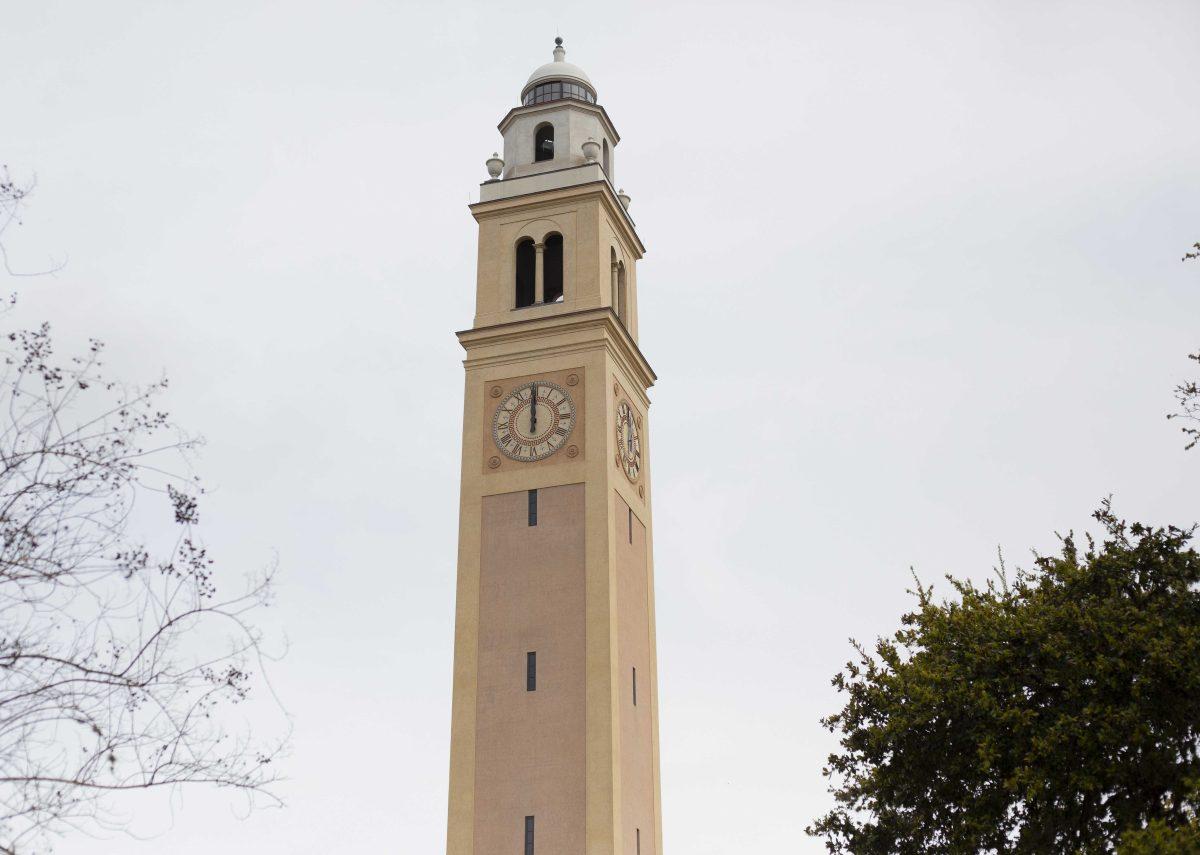LSU sociology professors discovered that Christian nationalist support of Trump isn’t tied to religious institutions or attending church on a regular basis. Instead, it’s tied to not attending church.
The researchers define Christian nationalism as a set of beliefs about how Christianity should be prioritized in public life, in laws and in America’s national identity. Those who hold Christian nationalist beliefs are more likely to agree that the federal government should declare the United States a Christian nation, or that the success of the United States is a part of God’s plan.
In a forthcoming publication in Sociological Forum titled “Unchurched Christian Nationalism and the 2016 U.S. Presidential Election,” associate professors of sociology Samuel Stroope and Heather Rackin use survey data from 2017 to assess whether the relationship between Christian nationalism and Trump voting differed from those who regularly, occasionally or never attend religious services.
Their analysis suggests that Christian nationalism is only significantly associated with Trump support among unchurched voters.
Nearly 90% of non-churchgoers who strongly agreed with Christian nationalist sentiment voted for Trump in the 2016 presidential election. Less than 10% of non-churchgoers who strongly disagreed with Christian nationalist sentiment voted for Trump.
However, Stroope and Rackin did not find any evidence that Christian nationalism was tied to Trump-voting among churchgoers. The effects of Christian nationalism on voting may depend on voters’ religiosity.
“These results suggest that while religious ideology remains a key driver of political attitudes and behavior in the U.S., its effects may have less to do with embeddedness in traditional religious organizations and more to do with ways people use religious narratives in everyday life to construct and defend symbolic boundaries,” the paper read.
Stroope explained why religious narratives about Christian nationhood may have their strongest political effects when they are detached from religious institutions.
“Religion has many dimensions, and belief, behavior and identity don’t always align,” Stroope said. “American religious attendance has seen modest declines in recent decades, yet many Americans retain a variety of complex beliefs, identities, and feelings related to religion. Regardless, Christian nationalism could be an effective tool for the GOP to use in appealing to people who don’t attend church but who still have strong feelings and beliefs that Christian culture—however they understand that—should be privileged in the public sphere.”
The paper explains that Christian nationalist sentiment among unchurched voters may have more to do with drawing group boundaries and less to do with religious beliefs.
This kind of sentiment, referred to as secularized Christian nationalism, is often more populist and a powerful electoral draw for individuals who are detached from religious communities, according to the paper. Stroope explained that ties to religious communities can counteract these kinds of attitudes.
“Institutions in general can have a stabilizing effect on people’s lives and ideologies,” Stroope said in a press release. “People who want to have their views ‘checked’ might also self-sort into institutions. Furthermore, religious communities can have a stress-buffering effect, so people feel less desperate for an authoritarian figure like Trump.”
Stroope said it is important to remember that religion is complex and multidimensional.
“It shouldn’t be surprising that many people who don’t attend church still have religious beliefs and identities, and these religious identities can be used to draw boundaries, infer value, and be a salve for alienation in a changing America,” Stroope said.




